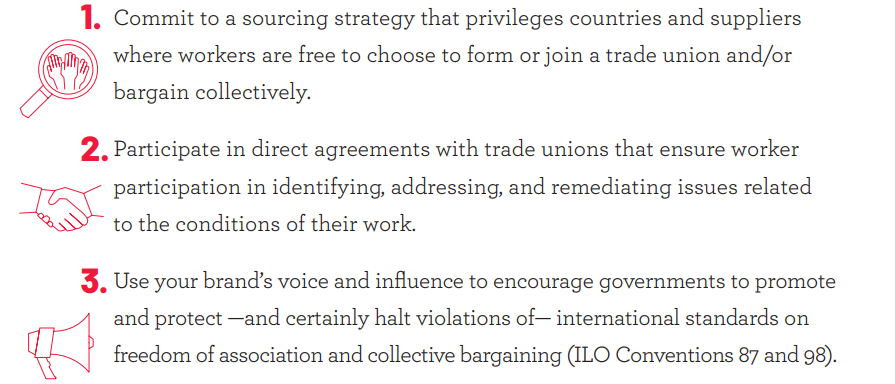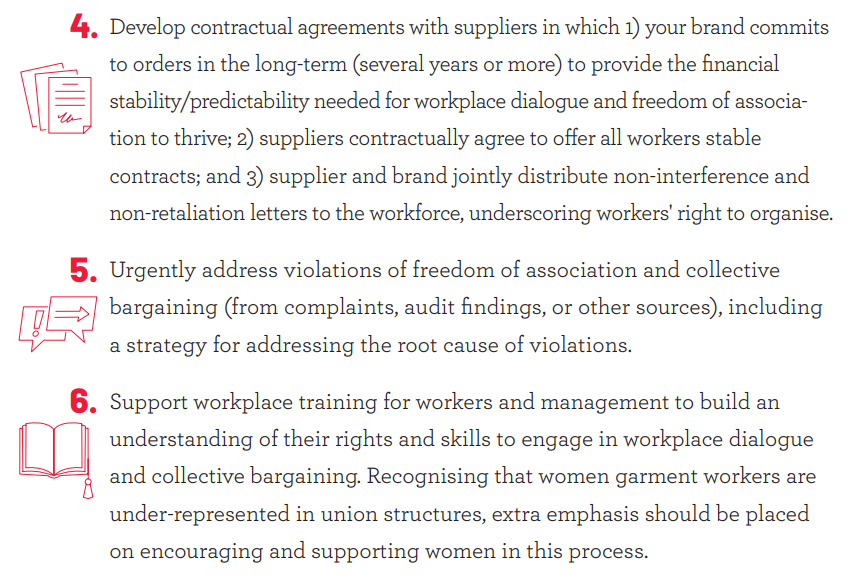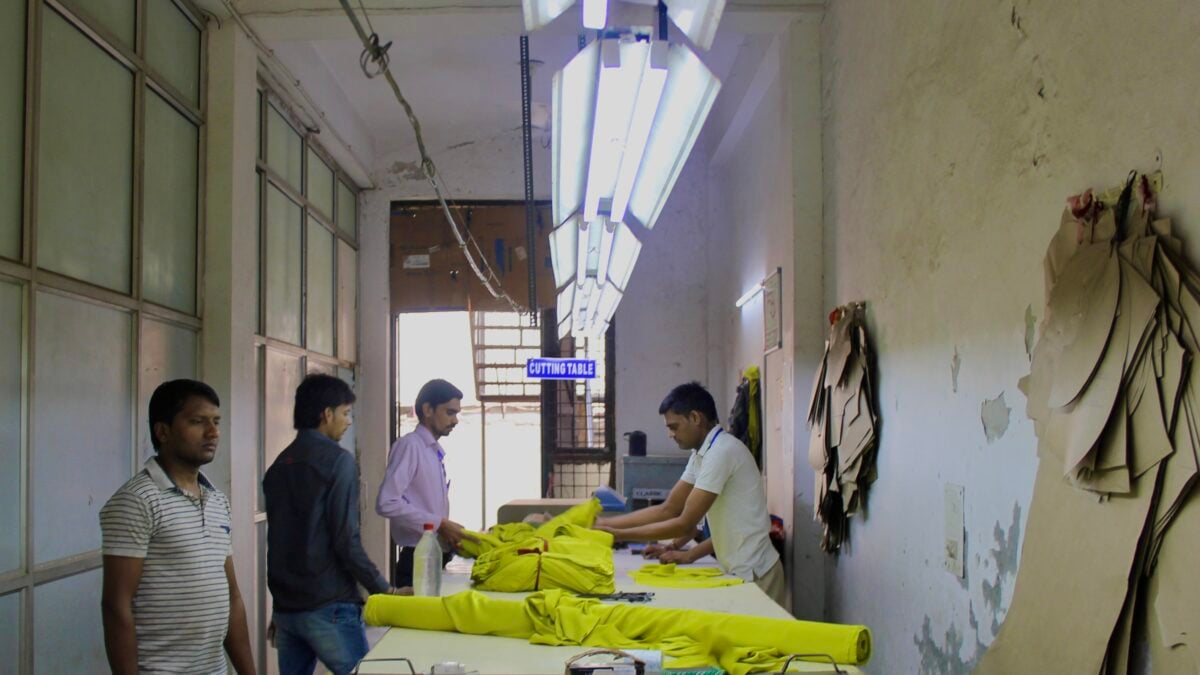Each year on 24th April we commemorate the 1,100 people who tragically lost their lives during the deadliest garment factory accident in history, Rana Plaza. Eleven years on, we’re asking what the disaster can teach us about the rights to freedom of association and collective bargaining.
The collapse of the Rana Plaza building starkly brought to light the exploitative nature of the garment industry, with many asking why workers were forced to work in a building that was unfit to house several factories, even when they had raised concerns over their safety. There are both simple and complicated answers to this question. On the one hand, the answer is straightforwardly cheap production. But on the other, the rights to freedom of association and collective bargaining — and the role they play in enabling workers to have their voices heard — must be considered.
One of our eight code of labour practices is about supporting the rights to freedom of association and collective bargaining. These two rights mean that both workers and their employers can form and join unions and associations (respectively) of their choosing. As such, both groups can be formally and collectively represented in negotiations on how to improve working conditions. Moreover, these rights are fundamental for ensuring workers can exercise all their other rights.
However, in many producing countries, freedom of association and collective bargaining are precariously upheld at best, and completely restricted at worst. In some countries, trade union members can be arrested or even “disappear” as result of their membership activities. Moreover, the supply chain is defined by power imbalances, making it exploitative to its core. These exist between both brands and their suppliers and between factory management and workers. Brands, therefore, have a significant role to play in both promoting and protecting these rights – as we have seen what can happen when workers’ voices aren’t heard.
They can do this by creating an enabling environment for their suppliers. For example, they can offer stability of contracts, orders, and payments so that suppliers are better able to plan production effectively; manage working hours; pay workers fairly; and invest in improving labour conditions. They can also establish and enforce supplier codes of conduct that explicitly recognise workers’ rights to freedom of association and collective bargaining. Other actions can be taken more formally through non-retaliation agreements and direct agreements with worker representatives (namely trade unions).
We understand, however, that this is not always easy. That’s why we guide and empower our member brands and stakeholders to overcome the challenges they might face and have developed a 6-step action plan for brands to follow and support these rights. More information can be found in Fair Wear’s freedom of association and social dialogue guide for brands.
Actions for change at the systemic level

Actions for change in your brand and suppliers

It’s clear that our guidance has positive impact on the supply chain. For example, three of our member brands worked on step 6 through a joint social dialogue pilot project. Partnering with three production locations, they provided a forum for workers and management to discuss topics such as living wages. A core part of this project was to train workers on the process of social dialogue, and their communication skills more broadly, so that they are better able to exercise their rights to freedom of association and collective bargaining in the most productive way possible. During the training, workers expressed that their worker representative committees were ineffective. The training, therefore, was adapted and extended to cover methods beyond communication skills. The response has been overwhelmingly positive, with the production locations reporting a positive impact on how well management and workers now communicate with one another.
This is just one example of many where our member brands have actively committed to upholding the rights to freedom of association and collective bargaining through following our six-step guidance. It also demonstrates how joining a multistakeholder initiative provides garment brands with a platform to collaborate and share resources to drive positive change in their supply chains.
Projects such as the joint social dialogue initiative signify how investing in freedom of association and collective bargaining can empower workers to collectively negotiate for improved working conditions. Thus, as we commemorate the lives lost at Rana Plaza, let us reaffirm our commitment to advancing these rights as cornerstones of a more equitable future for garment workers worldwide.
To read more about our member brands’ progress on freedom of association and collective bargaining, please see here.


